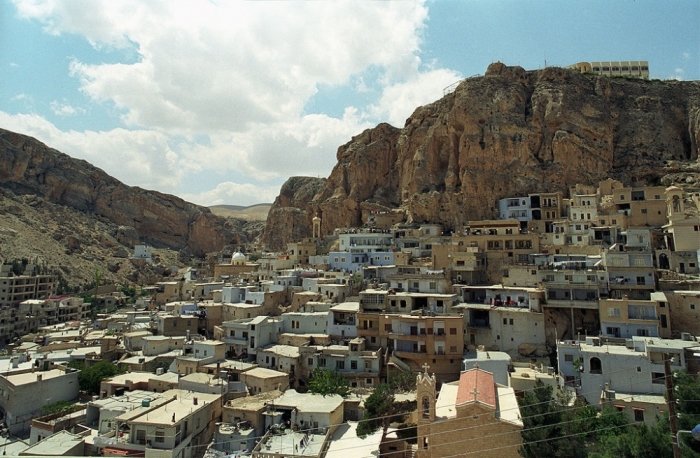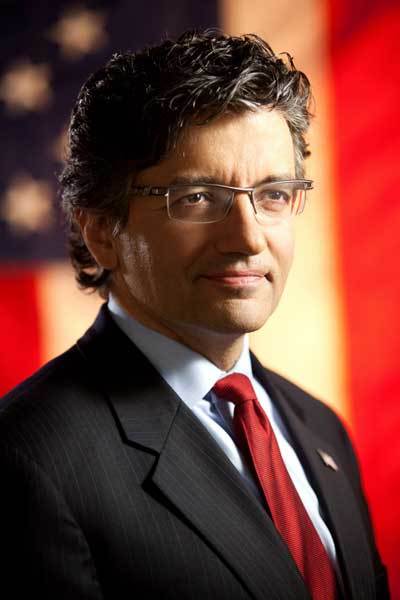9/11, Syrian Conflict Are 'The Same Fight' Against Radical Islam, Experts Say

Radical Islamism, the ideology behind the Sept. 11, 2001, attack on the World Trade Center, also fuels the conflict in Syria, Middle East experts agree. They disagree, however, on the degree of support which the United States should give to the forces opposing President Bashar Al-Assad.
M. Zuhdi Jasser, vice chair of the United States Commision on International Religious Freedom and president of the American Islamic Forum for Democracy (AIFD), told The Christian Post Tuesday, "9/11 woke up America to a symptom of a deeper disease, and that disease is what produces militant groups like al Qaeda or radical Islamism." He argued that "the core issue is not the militants, it's the ideology of political Islam."

Jasser, who is Syrian American, argued that this worldview grew from a conflict between secular governments and radical Muslims in the Middle East over the past century. "The Muslim Brotherhood cut its teeth fighting Nasser, Sadat and Mubarak," he explained. Without a Muslim government, they argued, national fascist dictators will enforce their tyrannical rule by military authority.
The IAFD President claimed that if the U.S. had aided the opposition forces early on, Syria would have had a chance to maintain its diverse population. At the beginning of the conflict, it had a "vibrant, pluralistic community," with Christians forming 10 percent, Alawites another 10 percent, Kurds between 10 and 15 percent, and Sunnis 65 percent of the population.
"But that community is being lost in the nuclear winter of the most egregious violations and crimes against humanity going on right now," Jasser said. He noted the deaths of more than 110,000 Syrians and the use of chemical weapons.
"We're being raped, tortured, imprisoned, and murdered," Jasser, who still has family living in Syria, paraphrased his family's reports. He argued that "this is not a civil war," because the Assad regime would have been overturned by Syrians if Iran and Hezbollah had not been supporting it. He estimated upward of 10,000 foreign soldiers in Assad's army.
The opposition, by contrast, enjoys the support of the people. "You have millions of Syrians forming local coordination committees of disobedience around the country," Jasser explained, noting that between five and 10 million are organizing to oppose Assad. Only 50,000 of those in the opposition movement belong to militant groups, he argued – 10,000 in al Qaeda and 37,000 in the Free Islamic Front. The secular Free Syria Army, by contrast, includes 50,000 to 100,000.
Jasser did not argue for American troops on the ground in Syria, but he did encourage support for the opposition.
But Sarah N. Stern, founder and president of the Endowment for Middle East Truth, emphasized the ties between the radical Islam behind 9/11 and the Syrian rebels, and warned of "unforeseen consequences" if America gets involved.
Meanwhile, Nina Shea, a 30-year international human rights lawyer and director of the Center for Religious Freedom at the Hudson Institute, told CP on Tuesday, "As we commemorate another anniversary of 9/11, we have to turn our thoughts and prayers to the Christian minorities in the Middle East who are in dire peril." She said that the persecution of Christians in the Middle East and the attack on Sept. 11 comprise part of "the same terror."
Shea accused both the Syrian opposition and Assad's government of waging a "shadow war to cleanse the area of Christians." President Assad has made an alliance with Iran and follows "radical Shiism," while the opposition contains radical Sunnis. "We should be doing what we can to mitigate the suffering and persecution against the innocent Christians there," the religious freedom expert argued.
Since the Christians are not causing the war, they seem to slip under the radar. Worse, the believers in Syria tend to avoid public areas.
"Christians are afraid of going into U.N. refugee camps because the Sunni rebels raid those camps regularly or recruit from them," Shea explained. Because Syrian Christians wish to remain neutral in the conflict, "they do not register as refugees, and they are invisible." Instead, they flee to Turkey and Lebanon, while the local villages are neglected by the power structures.
The attack on the Christian population proves especially dire, Shea argued, because such religious minorities are a "moderating influence in the Middle East." Believing in western education, the separation of church (or mosque) and state, and women's rights, they provide a key role in U.S. outreach to this region of the globe.




























